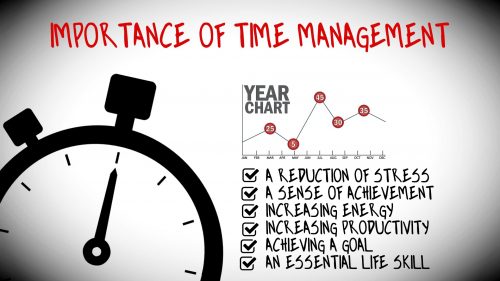I have been preparing for M.B.A. entrance exams since 2 years now and shall soon be joining a decent b-school and therefore, I think I am in a position to share with you my opinion on how you can plan to start your preparation to crack these exams.
M.B.A. stands for Masters of Business Administration and is currently the most sought-after “Masters” degree in India. Although most of the colleges, including the government colleges like I.I.M.s, offer a Diploma degree in Management whereas the I.I.Ts, X.I.M.B., Narsee Monjee Mumbai e.t.c. offers an M.B.A. degree, there is not much difference in the curriculum. In the past 5 years, innumerable number of students as well as professionals, from varied backgrounds such as Business, Engineering and Technology, Science, Commerce and even Arts and Medicine, have opted out from their own field of study to pursue MBA.

Just a month ago, I appeared for the Group Discussion and personal interview test of an esteemed b-school and guess what, I was accompanied by a doctor and two Charter Accountants, among a bunch of Commerce and Engineering graduates. Hence, you can already imagine that the entire process is, in a way, getting tougher and tougher every year! At present we have a whooping 5,20,000 MBA students passing out of the b-schools in our country this year. Needless to say, due to this over-crowding, the level of difficulty of the various management entrances such as CAT, XAT, IIFT etc are increasing every year!
So, how should you plan and go ahead with your preparation? How do you manage your most valuable resource, which is time, to reap yourself the maximum benefits? Let’s see how:
-
Contents hide
Clarify your purpose for doing an MBA:
Before you start off with any study material and roll out your preparation process, take some time out and ask yourself, why you want to do an MBA? Let me tell you something. Your panelist may not ask you to introduce yourself, but no panelist in any Indian b-school will ever skip this one question: Why MBA? You may belong to any background, let’s say Pharmaceuticals, but why you are willing to leave your own field and change over to Business Studies is something you should be extremely clear about! Jot down those points. An MBA degree is rewarding, stimulating and ensures a professional with high remuneration, but the relevance of MBA in your career is what you should be able to explain with sound logic.

-
Start with a mock test:
Let me assume you have not yet started your preparation. So why am I being crazy and asking you to take a mock test now? Because ALL MANAGEMENT ENTRANCES ARE APTITUDE TESTS! Aptitude tests are based on what you have learned in Mathematics till class X, your logical abilities and critical thinking, your innate ability to take the optimum best decision and your verbal knowledge and analysis power. We must remember that most of these qualities we already possess by the virtue of our schooling, reading habit etc and so, we can only polish them in order to stay ahead of others.
So, with absolutely zero preparation when you take a mock test, you get an idea of your strengths and weaknesses. There are plenty of websites that offer you free mock tests. Take one of them with complete honesty. This is the first step in your preparation for these exams.
- Concept building:
Now that you have a clear idea of your strengths and weaknesses, I suggest you start focusing on your weak area.
If you are weak in the Quant section:
If you have not enrolled in any institute for CAT and OMET (Other Management Entrance Exam) preparation, grab the Quant material of any well-known institute as well as keep a Quant book, such as books by Sarvesh Verma and Arun Sharma with you. Then comes the most vital part, READ ALL THE THEORY related to a topic before delving straight into the exercise. This is extremely important to build a strong base. Then go over to the exercise.

If you are weak in Reading Comprehension and Verbal Ability:
This section is largely dependent on your exposure to the world of English language throughout your life, your reading habit so far and if you can interpret a passage after you read it. But if you do not have a reading habit, you can start reading a quality English newspaper daily. This will not only improve your command over English but also improve your general knowledge, which is extremely important for SNAP, IIFT, XAT etc. You can pick up a novel by any good author and try to finish it within a week. YouTube videos on discussion on social issues in English, also helps a lot.
But most importantly, if you are weak in this section, you MUST practice at least two comprehensions a day, ten Verbal Ability questions and carry out a thorough analysis of your mistakes.
If you are weak in Logical Reasoning:
You can crack this section if you make online puzzle solving your hobby! Solve riddles, math puzzles whenever you get time. As you do this regularly, your brain automatically gets used to find ways to analyse the complications of a puzzle much faster by disintegrating the problem into simpler parts. Practice around 5 questions of logical reasoning every day from actual CAT papers, institute study materials or from online preparation sites to get an edge over others. Analyse, where you went wrong and why.
If you are weak in Data Interpretation:
Data Interpretation is all about being smart with numbers and calculation and being able to see through data and the mobility of data. You can start with learning some standard calculations such as the squares and cubes up to 25, square roots and cube roots from 1 to 10, percentages etc. You can go through any material or the Data Interpretation book by Arun Sharma, from where you must practice at least 3-4 Data Interpretation questions at least 3 or 4 days a week.
If you are weak in Decision making:
Decision making is the trickiest part in XAT test and I have seen a lot of my fellow aspirants, who are 95 percentilers in Quant or Logical Reasoning, to struggle haplessly in this section. Decision making is the innate ability to take the optimum best decision in a crisis situation. I say “optimum” because the other options may not be wrong, but they may not be the best. So, how do you judge? There are some golden rules: The decision you take should never be too lenient or too aggressive or sound too people-pleasing and MUST be the best decision that seem even with respect to all the stake-holders in question. In short, balanced.
But that’s easier said, than done. Hence, I suggest you to get hold of reasoning book by Piyush Bhardwaj, published by Arihant Publishers or solve decision making questions from actual XAT papers.
Now, you must try your mighty best to practice all the sections every day, with more emphasis on your weak areas.

-
Time Management:
CAT is no rocket science! You can solve all the 100 questions if you sit with it the whole day. But the real challenge is to solve the questions within the stipulated time, keeping your mind relaxed and without panicking. And hence, time management is the MOST IMPORTANT factor.
Let’s talk about the quant section; you are given 60 minutes to solve 34 questions. So you have basically 1.76 minutes to solve all the questions in this section. If you leave out 16 questions and solve 20, still you are left with only 3 minutes to solve each. Hence, you should focus on two things; one, you must time yourself and train yourself to solve each quant question in 2 minutes time and you must pick out the easiest ones and solve them first. Come on, you are not given Brownie points to solve harder questions isn’t it!
As of reading comprehension, you must take 15 minutes for each passage; don’t rush through it, read and analyse, because it is more important to get your answers correct than to get a bunch of wrong answers.
Similarly, you must train yourself to solve each Logical Reasoning or Data Interpretation question under 10 -12 minutes.
As for Decision Making, it is very important to read and analyse the case-let and understand what the question is actually asking before answering it. Hence rushing through this section is a very bad idea. In XAT, if you can answer around 12-14 decision making questions correctly, congratulations, you have secured above 92 percentile in this section.
-
Mock Tests and Mock Analysis:
Perhaps, the most important part of this entire preparation phase is taking mock tests or more importantly, mock analysis. I can guarantee you; you will learn a lot more from mock analysis than you will ever learn from any other sources. Take 2 mocks every month, during your initial phase of preparation and 2- 3 days for the full analysis of every mock. Go through all your mistakes, solve all your unanswered questions and even see through the ones you got correct. If necessary, make notes or copy down any new concept that you learn through mock analysis.
During the later phase, you must take 5-6 mock tests in every month but take care to see, that you don’t skip a mock analysis before going over to the next mock. Before you face CAT, you must have taken 15 – 18 mocks and have completed their full analysis. Moreover, your mock test and mock analysis must cover all the entrance exams you are aiming for, not only CAT.
I must mention here, that during the initial months, your mock results may be miserable, but you must not give up. Remember, only proper analysis of mocks can improve your percentiles and with time, you will see how easily you soar and get a score of above 100- 120 in mock tests.

I suggest you maintain a diary or a separate folder in your computer where you keep a screenshot of all your mock results and analyse your performance.
I would like to conclude by saying that the preparation of management entrances such as CAT, XAT should be made into a habit and cannot be achieved by the work of one day or one month. Regular reading of good novels, English newspapers, critically analyzing the newspaper or magazine articles, juggling the quant formulae in your mind when you are free as well as solving math puzzles daily are some of the immensely valuable habits that can make you crack these exams easily as well as mould you into a more qualified individual.
